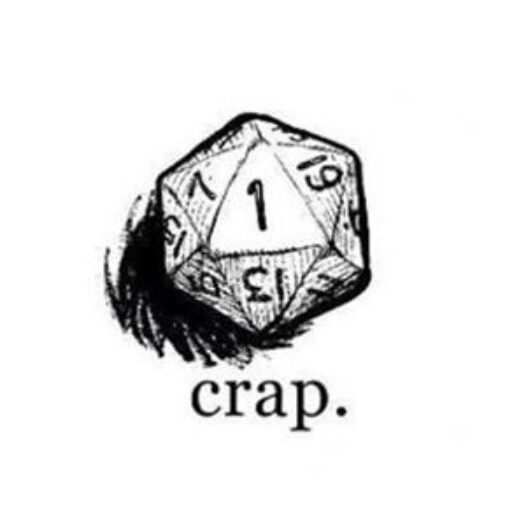I thoroughly enjoyed playing Deadlands again and I’m looking forward to continuing the adventures of Mars, Callie, Bartimus and Lewis out on the frontier. There are enough loose ends and dangling plot hooks that it should be easy to pick up the story again.
So of the rules I adapted or made up before we started, what worked and what didn’t? What about the Homebrew needs fixing?

What worked:
Character Creation: The Cypher system made it pretty easy to give people an expansive array of options and let the players build some instantly relatable characters. It seemed like everyone had a strong idea and got to follow through – or if they didn’t, that idea ended up fleshed out enough by the end of the first session. The character relations are a small part of character creation, but I really like them.
Hexes: I think Bartimus’ magic worked. Obviously, being a low tier character it’s not like the whole system was plumbed, but in general I think it had a decent success rate and good utility without being game breaking. The rules were straightforward and play wasn’t slowed down just because a unique mechanic was at play.
Ammo management: Reloading during a firefight is the real management here. You have a story appropriate amount of ammo at all time, so the key is using it. People biffed their reloading a lot, but that didn’t wreck the game, it just made things trickier, which is a better outcome than ensuring defeat. Ammo management is a BITCH in other games, but by representing bullets with chips we kept it moving quickly.
Combat: Melee or ranged worked well, went by pretty quickly. There’s not a lot of paperwork, or number checking. I have no complaints about combat.

What didn’t work:
Cyphers: They’re the signature feature of the Cypher system and I thought I’d been very clever in finding a way to incorporate Cyphers into the setting, but it turned out that no-one used a single one. They didn’t get many, which is maybe the problem. Ideally you should be tripping over cyphers so that you never feel bad using one up. They’re supposed to be disposable. How I’m going to get enough cyphers within reach on a regular basis eludes me at the moment.
Player Intrusions: I mentioned these before we started playing, but it isn’t fair to expect the players to take on a new setting, new characters and also take on extra rules for the system they already know. Player Intrusions are introduced in Numenera 2, so we’ve never actually played this rule as part of other cypher games. I think they’re a neat idea, but I have no idea how they’ll actually go, so I’m not too beat up that we didn’t get to these. Later, maybe; but if not, that’s fine.

What needs more time/work:
Horse Karma: Horses are important. Red Dead Redemption 2 got this very, very right. Goddamn, but Arthur’s goodbye to his horse fucking wrecked me, way more than the ends of any of the likeable dumpster fires that were the human actors in the drama. The horse and the western expansion of the US are intertwined in such a way that they’re a huge part of the story. You can’t describe the western genre without featuring horses, they’re a foundational pillar. Ideally in a Western game there’d be a way to incorporate special traits or skills into horse ownership that gives them some personality or worth beyond the thing you get on/off at the end/start of a scene. A lot of the game, after all, will be played on horseback. So as well as having rules for different types of horses (Spanish breeds are renowned as good cattle cutting horses, Arabians are fast and difficult to handle, Shire horses are never going to win a foot race, but can haul jail walls clean off their foundations) I need to figure out how to come up with a system of Horse Karma and a way to instill some sort of personality into the horses of the world. Predation gives us an amazing model of having animal companions with personality, but I don’t want to get that involved, but it could be that there are things to steal from that.

In a Horse Karma system, you’d be penalized somehow for being a dick to a horse. In so many (so many!) westerns problems would be solved if the horse had just been shot out from under the fleeing kidnappers/bad guys etc. But they aren’t, because PEOPLE AREN’T MONSTERS . Shooting a horse that didn’t need shooting isn’t a) easy b) something that honest folks will abide. Shooting an fleeing bad guy’s horse is a lazy way of avoiding a horse chase, one of the signatures of the genre.
Similarly, you’d be awarded for being good to horses. Your horse or other horses, that wouldn’t be important. So how to do that? Maybe easing future tasks if you have good Karma, making them harder if you and horses aren’t seeing eye to eye. I’ll have to think it over.





One thing I thought of, but didnât add here is my growing fatigue with perception rolls. This isnât particular to the Deadlands Homebrew: itâs the kind of habit thatâs been inherited from ye olden days and itâs kind of shit.
How it goes is a thing happens and the GM asks for perception checks (or whatever the equivalent is in that system) and everyone rolls and tells the GM what their result was and then the GM tells everyone what probably only some people saw. BUT if no one passes then… well, nothing. And if that was an important piece of information, that can make the plot grind to a halt.
So when trying to think of a better way to do Perceivinâ, there are a couple of things Iâm going to try to remember:
– Some players want to play a perceptive character and sink points into perceptive skills. They shouldnât get screwed. This might mean that they see more, or see details that others wouldnât or are faster to put together the meaning of what they see. I like the Star Trek Adventures idea of additional successes meaning that you can learn more and more about a thing you perceived.
– A bunch of time could be saved if the GM just nominates who notices something, based on the skills and build of that character. Deadlands with these characters could be a pretty could test bed: Mars sees beyond into the ever-present netherworld of the Hunting Grounds and is likely to spot itâs influence. Bartimus, meanwhile is trained in Hexes and subterfuge and is the most likely to see evidence of these at work. Lewis sees the probabilities in everything so is by far the most likely to spot risks or opportunities. Callie has no special perceivinâ skills like Lewis or Mars do, but her horse sense and time spent with the Sioux should inform her in these areas.
– A plot pivotal point that relies on a single perception roll is… itâs a bad plot, Brent. Perceiving well could make plot progress faster, or convey a benefit or negate a negative, but it shouldnât be the only thing on which the plot hangs.
Having a perception system – with strengths and weakness based on the character the player has built is a tiny bit more paperwork for the GM (writing what everyoneâs wheelhouses are on a postcard, remembering to parcel out spots accordingly) but with less boring rolls during the game.
Fortunately, Star Trek Adventures lends itself really well to these kind of things because you literally have Engineering Officers, Medical Officers, Xenoanthropologists, Botanists, fucking Betazoids for godâs sake. They already have specializations explicit in the character creation.